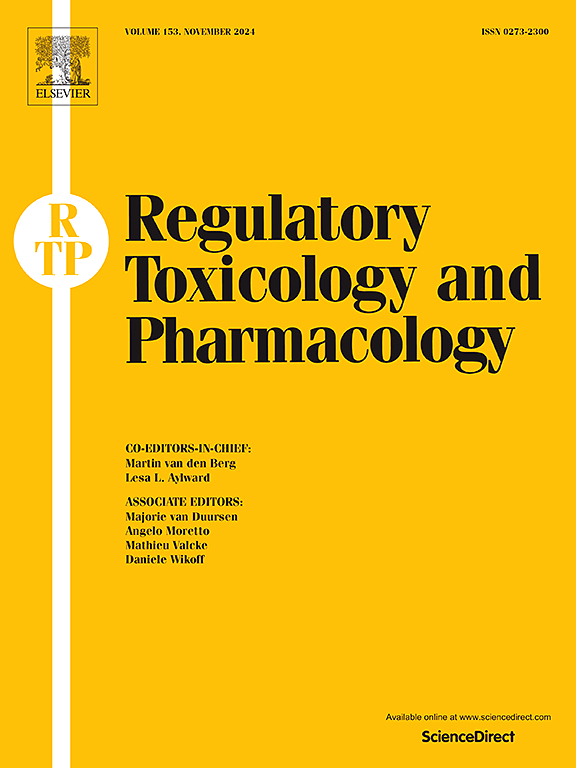Quantitative risk assessments of skin sensitization for 26 allergens in different consumer products in the Saudi market
IF 3
4区 医学
Q1 MEDICINE, LEGAL
引用次数: 0
Abstract
Fragrance chemicals are ubiquitous in cosmetics; however, they have been linked to allergic contact dermatitis. Allergy prevention involves two main strategies. Firstly, consumers are protected by limiting the maximum concentration of fragrance in a given product to avoid inducing allergies. Secondly, consumers who are already sensitized are protected by having the presence of such fragrance communicated to them. In this study, a validated GC-MS method was employed to quantify 26 allergens in 108 products marketed in Saudi Arabia.Additionally, a quantitative risk assessment (QRA) was performed on the studied cosmetics to determine the risk of inducing allergies. The results indicated that most allergens were present at acceptable concentrations, while 19 products carried a risk of inducing allergies. Furthermore, Lilial and Lyral, two prohibited fragrances, were detected in 97 products. It should be emphasized that this is the first study conducted in Saudi Arabia to evaluate the safety of the well-known 26 fragrance allergens. Hence, this study can potentially serve as a regional standard for future research.
对沙特市场不同消费品中的 26 种过敏原进行皮肤过敏定量风险评估。
香料化学物质在化妆品中无处不在,但它们却与过敏性接触性皮炎有关。预防过敏主要有两种策略。首先,通过限制特定产品中香料的最大浓度来保护消费者,避免诱发过敏。其次,对于已经过敏的消费者,可以通过告知他们产品中含有此类香料来保护他们。此外,还对所研究的化妆品进行了定量风险评估 (QRA),以确定诱发过敏的风险。结果表明,大多数过敏原的浓度在可接受范围内,而 19 种产品有诱发过敏的风险。此外,在 97 种产品中检测到了 Lilial 和 Lyral 这两种禁用香料。需要强调的是,这是沙特阿拉伯首次对众所周知的 26 种香料过敏原的安全性进行评估。因此,这项研究有可能成为未来研究的地区标准。
本文章由计算机程序翻译,如有差异,请以英文原文为准。
求助全文
约1分钟内获得全文
求助全文
来源期刊
CiteScore
6.70
自引率
8.80%
发文量
147
审稿时长
58 days
期刊介绍:
Regulatory Toxicology and Pharmacology publishes peer reviewed articles that involve the generation, evaluation, and interpretation of experimental animal and human data that are of direct importance and relevance for regulatory authorities with respect to toxicological and pharmacological regulations in society. All peer-reviewed articles that are published should be devoted to improve the protection of human health and environment. Reviews and discussions are welcomed that address legal and/or regulatory decisions with respect to risk assessment and management of toxicological and pharmacological compounds on a scientific basis. It addresses an international readership of scientists, risk assessors and managers, and other professionals active in the field of human and environmental health.
Types of peer-reviewed articles published:
-Original research articles of relevance for regulatory aspects covering aspects including, but not limited to:
1.Factors influencing human sensitivity
2.Exposure science related to risk assessment
3.Alternative toxicological test methods
4.Frameworks for evaluation and integration of data in regulatory evaluations
5.Harmonization across regulatory agencies
6.Read-across methods and evaluations
-Contemporary Reviews on policy related Research issues
-Letters to the Editor
-Guest Editorials (by Invitation)

 求助内容:
求助内容: 应助结果提醒方式:
应助结果提醒方式:


